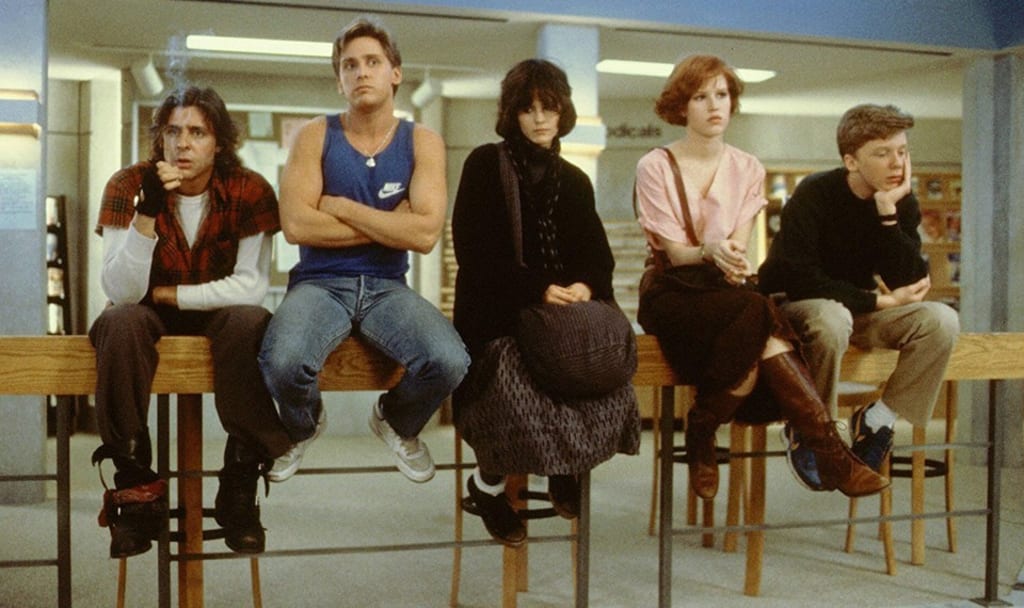How the 80s Ruled the World
The Lost Art of Movie Making

Big budget special effects coupled with a great story can be a wondrous thing. With the aid of CGI, a filmmaker can transport us into the magical worlds they create, giving us, sometimes, a well needed break from reality and the trials and tribulations that come with life. Escapism at its very best. Most notably, for me, the Star Wars franchise. However, somewhere down the line, I feel the CGI revolution seems to have taken over and the true art of movie making, the story, seems to be suffering.
If we jump in to our metaphoric De’lorean, let me take you back to a time when all we relied on to make a good movie was good old fashioned story telling. An art which, I seem to think, has taken a back seat to the driver that is CGI.
The 1980s, for me, was the golden age of cinema, and the last of the great story tellers. With technology playing second fiddle to the writing, this was truly the best era for stories to be told, stories that would stay with us well into the new millennium. With so many to choose from I shall stick with the ones that had the most impact on me. So from here on in this is purely my own personal opinion.
Let’s jump right into the greatest adventure story ever told, The Goonies—story written by Steven Spielberg and the screen play written by Chris Columbus. This movie told the story of a merry band of miss-fit kids going in search of the once feared Pirate, One Eyed Willie’s, lost treasure, all to save their home from foreclosure. Following the clues from a treasure map, these kids take us on whirlwind adventure filled with underground tunnels, booby traps and a villainous, and somewhat comedic, gang in hot pursuit. With memorable lines such as "Hey you guys" and "Goonies never say die," this now iconic movie taught us that against all odds, you must never give up. All of which helped cement the Goonies into cinematic history, and indeed, our hearts. Truly great story telling at its finest and not a computer generated image in sight.
"You guys wanna go see a dead body?"—a question that led to a far different adventure but equally enjoyable. The movie adaptation of Stephen King’s short story, "The Body," Stand by Me, was a movie driven purely by the story and the tremendous performances from its young cast. The movie that follows four young boys on the cusp of adolescence as they take one last adventure, the search of the dead body of a local missing teenager, with hopes of getting their faces in the local paper and being hailed as heroes, all before they’re split up into their respected classes as they start High School.
It's a journey of self discovery that taught us the true meaning of friendship, the dangers of wading through a leach infested swamp and never to burry your penny jar under the porch, coupled with the nostalgic 1950s soundtrack made this movie the classic it is.
To this day I cannot pass by a junk yard without hearing the now infamous words "Chopper, sic balls." A true masterpiece, all without the aid of any computer generated imagery.
The one man to corner the market for teen angst and coming of age movies during the 1980s was, undoubtedly, writer/director John Hughes. Of all his movies, the one that stands out amongst all the others, for me, was, The Breakfast Club. The premise for this little golden nugget of story telling was simple; a group of five teenagers lumped together in a library for detention. Five different personalities from different backgrounds; fitting into different social tiers of the high school hierarchy. What sets this movie apart from all the others is, during the one hour thirty seven minutes, barring a brief moment when they run wild through the school, this is a movie that is predominantly set in one room, and still manages to capture and hold your attention on multiple viewings. It is a true testament of the genius writing that is John Hughes, a movie that is extraordinary in its simplicity. This is story telling in its purest form and, as you’ve guessed, not a computer generated image in sight.
Now for a movie that is so early 90s (1990) it’s near enough an 80s movie and deserves its place on this list, Flatliners. Set in a university, it follows five student doctors experimenting with near death experiences. Flirting with the ethical and moral implications of their self experimentation on the possibility of life after death, they quickly come to the conclusion "Today is a good day to die." Taking turns, they each slow their heart rates until they, "flatline." Resuscitated and fully conscious they each share their findings and all is good. That is, until things take a very dark and unexpected turn. They’re each forced to confront specific demons from their past, culminating into a psychological battle of wits to lay those demons to rest. The reason this movie makes the list is because it’s truly an amazing original story, written by Peter Filardi, and told without a single computer generated image in sight.
If the 1980s has taught us anything, it is possible to make a fantastic movie with pure story telling at its core, something I strongly believe is fast becoming a lost art. As I write this, an age old saying springs to mind that seems fitting. They really don’t make them like they used to. Although they do make a good attempt at times, but that’s a story for another time.
About the Creator
Mark Kennedy
Scottish, very late 30's, one small dog named Arthur, named after Sir Arthur Conan Doyle and another dog the size of a small horse named Shadow. Writing is my passion, my hobby and my therapy.
Twitter @mkennedy198
Insta mark.kennedy080980






Comments
There are no comments for this story
Be the first to respond and start the conversation.